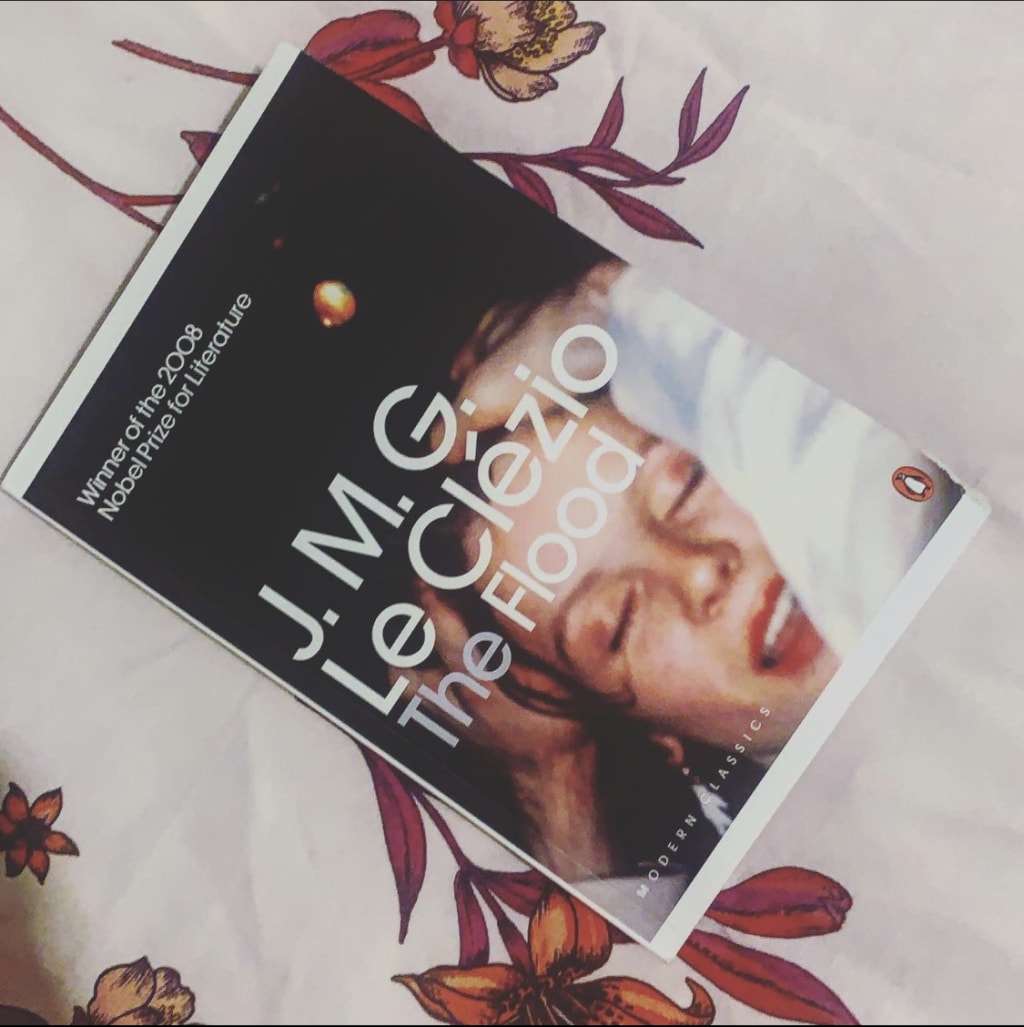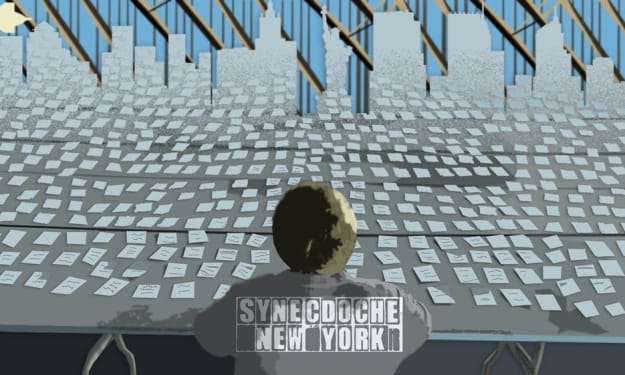Book Review: "The Flood" by J.M.G Le Clézio
5/5 - One of the most existentially moving books ever written...

J.M.G Le Clézio wrote “The Flood” about a person who was about to commit suicide and, in reading about the way in which death and suicide are covered in this book made me want to take my time with it. Unlike his novel “Terra Amata”, “The Flood” is very disturbing in its sense of existentialism when it is directly to do with a very specific death. The book itself is a brilliant representation of all the extremities of human emotion and all the existential thoughts that come along with being alone for far too long. It is, in my opinion, one of JMG Clezio’s best works and the book itself is a brilliantly written piece of crisis and melancholy. The writing style is so overwhelming that this is one of the reasons why I took my time reading this one. I just wanted to take a breather whilst reading it, breathing in and out with the incredible descriptions tinged by the emotions of the human experience in which the reader gets to see the inner-workings of an analysis of suicide and attempted suicide.
Let’s take a look at some of the book’s best quotations in my opinion. They are some incredibly written pieces and passages.
“Men and women no longer possessed much privacy: they formed a collective mass. And in this barbarous chaos you - you personally - were lost. You were overwhelmed by such an environment; in your naivety you had thought you could stand aloof. There was a time, long before, when you had, in a sense, placed yourself outside time: you had been that miniature landscape - remember? - that plaque of pale blue and pink mosaic representing the acropolis. The one patch of light in the centre of a black marble the curved and swelling surface, the blister, the bubble of life. You were perhaps, a central point, or a circle, in any case an irreducible geometric figure, incapable of assimilation. And yet, you were forced to surrender.”
But not only do we get quotations like these in which there are confrontations with reality and the way in which people move in this existential space almost slowly and carefully, treading around the ideals that are expected for people in assimilation and these actions committed by the second person at this point - we also get these landscape descriptions which contain realistic metaphors on the same or similar topics.
“In any case, as far as I am concerning these woods and houses and gardens may exist for others, but not for me. I no longer even perceive them. I have no new sensations, nor any past to sharpen my taste for them: I am in a state of immanence. There are many who live through this unconscious conflict, without hatred, without beliefs, never piercing the black veil that enshrouds them. One might say that they had lost something, were it not that their condition is very far from that of deprivation; yet somewhere along the line they have had a difficult passage, perhaps failing to stop at some intermediate point when they should have done.”
Then there is these amazing quotations regarding illusion and reality in which the narrator contemplates how real reality really is and whether illusion is the real reality. I know, it spins your mind but it is one of the greatest features about this book. Another reason to take your time and breathe deeply as you read it - almost in a state of yoga.
“There was nothing ephemeral about these faces; these bodies held no illusion. Their printed substance would hold the same pose for ever, or very nearly. Some might moulder at the bottom of a drawer, or be used to line a dustbin; but at least one of them would survive, in all her vivid, flashy, beauty, to testify how enjoyable life on earth had been at the time. These women would never grow old. Despite the passing years, their skulls would retain the mask of flesh that covered them; their parted lips would continue, hope for kisses, revealing the same row of seven pearly, undecaying teeth; their multicoloured eyes would gaze through the glass for ever, without pity, irony or malice, at the world of those who deluded themselves they were alive. Love unbounded shone in their expression, an abundance of love for the entire world.”
This quotation, like the majority of the ones in this book is very upsetting as it covers indirectly, the point of a woman who will kill herself because of the fact that she is expected to take all of this in, breathe it in and still seem like she has enough kindness for the world. It is the most self-destructive thing a woman can do and yet, even the author cannot use enough words to cover the situation which she is inevitably going to put herself in.
About the Creator
Annie Kapur
200K+ Reads on Vocal.
English Lecturer
🎓Literature & Writing (B.A)
🎓Film & Writing (M.A)
🎓Secondary English Education (PgDipEd) (QTS)
📍Birmingham, UK






Comments
There are no comments for this story
Be the first to respond and start the conversation.